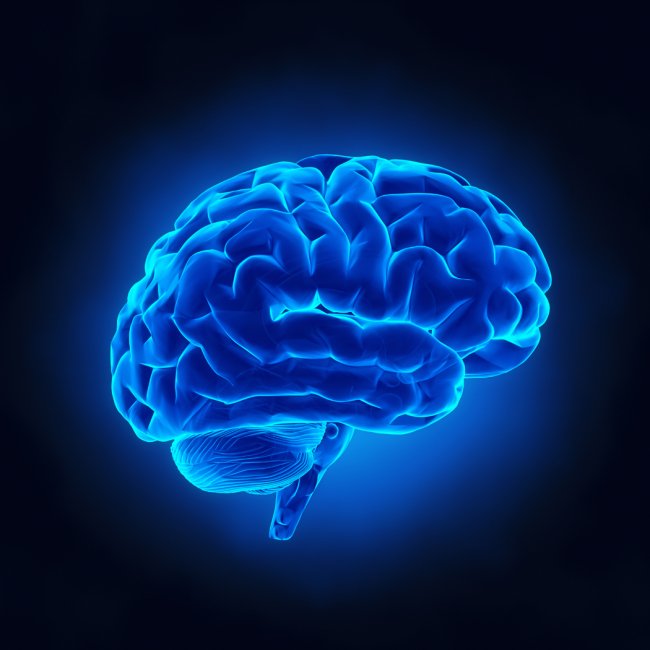Hormones are the body’s chemical messengers, orchestrating a vast array of physiological processes that influence both our physical health and behavior. From regulating metabolism and growth to shaping our moods and actions, hormones play a pivotal role in maintaining the delicate balance necessary for optimal functioning. This article explores the intricate relationship between hormones, human behavior, and physical health, shedding light on how these powerful molecules impact our daily lives.
Understanding Hormones: The Body’s Chemical Messengers
Hormones are produced by various glands in the endocrine system, including the pituitary, thyroid, adrenal glands, pancreas, and gonads (ovaries and testes). Once released into the bloodstream, hormones travel to target organs and tissues, binding to specific receptors to trigger biological responses. This system ensures that the body can respond to internal and external stimuli, maintaining homeostasis and coordinating complex processes.
Major Hormones and Their Functions
- Insulin: Produced by the pancreas, insulin regulates blood glucose levels by facilitating the uptake of glucose into cells for energy production or storage.
- Cortisol: Known as the “stress hormone,” cortisol is produced by the adrenal glands and helps the body respond to stress by increasing blood sugar, enhancing brain function, and suppressing non-essential functions.
- Thyroxine (T4) and Triiodothyronine (T3): These thyroid hormones regulate metabolism, energy production, and growth.
- Estrogen and Progesterone: Produced by the ovaries, these hormones are crucial for reproductive health, menstrual cycles, and pregnancy.
- Testosterone: Produced by the testes, testosterone influences muscle mass, bone density, libido, and aggressive behavior.
- Serotonin: Often referred to as the “feel-good” hormone, serotonin impacts mood, appetite, and sleep.
- Dopamine: This neurotransmitter plays a key role in motivation, reward, and pleasure.
Hormones and Physical Health
Hormones are fundamental to maintaining physical health, influencing various bodily functions that ensure the body’s systems operate smoothly.
Metabolism and Energy Regulation
Thyroid hormones (T3 and T4) are central to regulating metabolism—the process by which the body converts food into energy. An imbalance in thyroid hormones can lead to conditions such as hypothyroidism (slowed metabolism) or hyperthyroidism (accelerated metabolism), resulting in symptoms like fatigue, weight gain or loss, and mood swings.
Growth and Development
Growth hormone, produced by the pituitary gland, is essential for normal growth and development in children and adolescents. In adults, it helps maintain muscle mass, bone density, and overall body composition. Deficiencies or excesses can lead to conditions like gigantism, acromegaly, or growth hormone deficiency, affecting physical stature and health.
Reproductive Health
Sex hormones like estrogen, progesterone, and testosterone are critical for reproductive health. They regulate menstrual cycles, fertility, libido, and secondary sexual characteristics. Imbalances can lead to irregular periods, infertility, reduced libido, or conditions such as polycystic ovary syndrome (PCOS) and androgen deficiency.
Stress Response and Immune Function
Cortisol, the primary stress hormone, plays a dual role in managing stress and regulating the immune system. While short-term cortisol release is beneficial for coping with stress, chronic elevation can suppress the immune system, increase blood pressure, and contribute to weight gain and other health issues.
Hormones and Human Behavior
Beyond their physical roles, hormones significantly influence human behavior, emotions, and cognitive functions.
Mood and Emotional Regulation
Serotonin and dopamine are crucial for mood regulation. Low levels of serotonin are associated with depression, anxiety, and irritability, while dopamine deficiencies can lead to decreased motivation and pleasure. Conversely, excessive dopamine activity is linked to conditions like schizophrenia and bipolar disorder.
Stress and Anxiety
Cortisol levels rise in response to stress, preparing the body for a “fight or flight” response. While necessary for immediate stress management, prolonged cortisol elevation can lead to anxiety, depression, and cognitive impairments such as memory loss and difficulty concentrating.
Aggression and Social Behavior
Testosterone has been linked to aggressive behavior and dominance. Higher levels of testosterone can increase assertiveness and competitiveness, while lower levels may contribute to passivity and reduced social engagement.
Cognitive Function and Memory
Estrogen and testosterone also affect cognitive functions. Estrogen has neuroprotective effects and enhances memory and learning, while testosterone influences spatial abilities and problem-solving skills. Imbalances can lead to cognitive decline and impairments in daily functioning.
Hormonal Imbalances: Causes and Consequences
Hormonal imbalances can arise from various factors, including genetics, lifestyle, environmental exposures, and underlying health conditions. Understanding the causes and consequences is essential for maintaining both physical and mental well-being.
Common Causes of Hormonal Imbalances
- Stress: Chronic stress can disrupt the balance of cortisol and other hormones, leading to a cascade of health issues.
- Poor Diet and Nutrition: Deficiencies or excesses in essential nutrients can affect hormone production and function.
- Lack of Sleep: Sleep deprivation interferes with hormone regulation, including growth hormone and cortisol levels.
- Medications: Certain medications, such as steroids or hormonal therapies, can alter hormone levels.
- Environmental Toxins: Exposure to endocrine disruptors like BPA and phthalates can interfere with hormone signaling.
- Medical Conditions: Diseases like diabetes, thyroid disorders, and polycystic ovary syndrome (PCOS) can disrupt hormonal balance.
Consequences of Hormonal Imbalances
- Physical Health Issues: Weight gain or loss, fatigue, weakened immune function, and reproductive challenges.
- Mental Health Disorders: Increased risk of depression, anxiety, mood swings, and cognitive impairments.
- Behavioral Changes: Altered aggression levels, reduced motivation, and changes in social interactions.
- Chronic Conditions: Prolonged imbalances can contribute to the development of chronic diseases such as osteoporosis, cardiovascular disease, and metabolic syndrome.
Maintaining Hormonal Balance for Optimal Health and Behavior
Achieving and maintaining hormonal balance is crucial for overall health and well-being. Several strategies can help support the endocrine system and promote hormonal harmony.
Balanced Nutrition
A diet rich in essential nutrients supports hormone production and function. Key dietary considerations include:
- Healthy Fats: Omega-3 fatty acids found in fish, flaxseeds, and walnuts are vital for hormone synthesis.
- Protein: Adequate protein intake supports the production of amino acids, which are building blocks for hormones.
- Vitamins and Minerals: Vitamins D, B6, and magnesium play significant roles in hormone regulation.
- Fiber: Dietary fiber helps in the excretion of excess hormones and supports gut health, which is linked to hormonal balance.
Regular Physical Activity
Exercise helps regulate hormones by reducing stress, improving insulin sensitivity, and promoting the release of endorphins. Both aerobic and strength-training exercises are beneficial for maintaining hormonal health.
Adequate Sleep
Quality sleep is essential for hormone regulation, particularly for growth hormone secretion and cortisol balance. Aim for 7-9 hours of uninterrupted sleep each night to support endocrine function.
Stress Management
Chronic stress disrupts hormonal balance, particularly cortisol levels. Incorporate stress-reducing practices such as:
- Meditation and Mindfulness: Techniques that promote relaxation and mental clarity.
- Yoga and Tai Chi: Physical activities that combine movement with breath control and meditation.
- Hobbies and Leisure Activities: Engaging in activities that bring joy and relaxation.
Avoiding Endocrine Disruptors
Minimize exposure to chemicals that interfere with hormone function by:
- Choosing Organic Foods: Reduces exposure to pesticides and herbicides.
- Using Natural Personal Care Products: Opt for products free from parabens, phthalates, and other harmful chemicals.
- Filtering Drinking Water: Use water filters to remove contaminants like BPA and heavy metals.
Medical Interventions
In cases of significant hormonal imbalances, medical interventions may be necessary. Hormone replacement therapies, medications to regulate hormone levels, and addressing underlying health conditions can help restore balance. Always consult with a healthcare professional before starting any medical treatment.
The Future of Hormone Research and Therapy
Advancements in medical research continue to uncover the complexities of hormonal interactions and their impact on health and behavior. Emerging areas of study include:
- Personalized Hormone Therapy: Tailoring treatments based on individual hormonal profiles to enhance efficacy and reduce side effects.
- Gut-Endocrine Connections: Exploring how gut microbiota influence hormone regulation and vice versa.
- Genetic Influences on Hormones: Understanding how genetic variations affect hormone production and sensitivity.
These developments hold promise for more effective management of hormonal disorders and a deeper understanding of the endocrine system’s role in overall health.
Conclusion
Hormones are integral to both our physical health and behavioral patterns, acting as the body’s chemical messengers that regulate a myriad of functions. From maintaining metabolism and reproductive health to influencing mood and cognitive abilities, the balance of hormones is crucial for optimal well-being. Understanding how hormones affect human behavior and physical health empowers individuals to make informed lifestyle choices that support endocrine health. By prioritizing balanced nutrition, regular exercise, adequate sleep, and effective stress management, we can foster hormonal harmony and enhance our overall quality of life.



